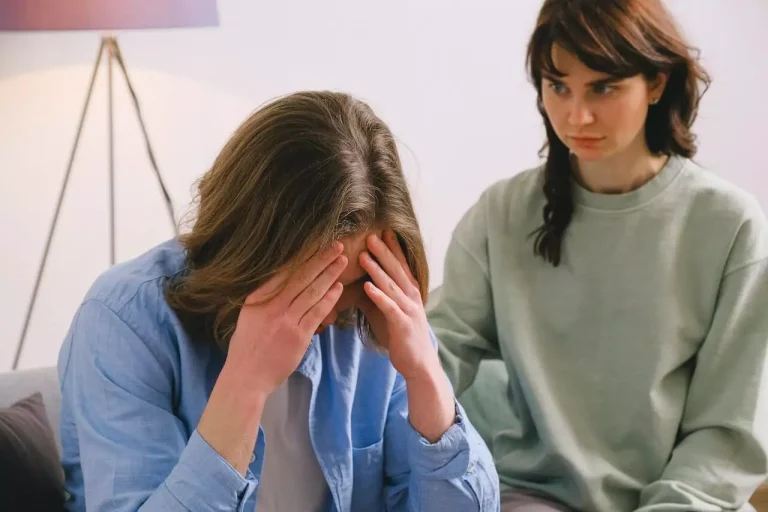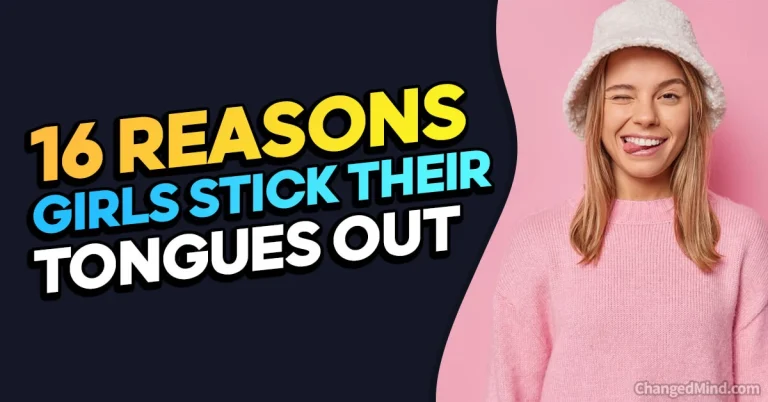Have you ever found yourself biting your lip during a nerve-wracking situation or caught someone else doing it? Ah, the mysterious language of the lips! It’s time to uncover the hidden meanings behind this intriguing gesture.
In this article, we will delve into the world of lip biting and explore What Does Lip Biting Mean in Body Language? From nervousness and attraction to self-soothing and concealing emotions, lip biting is a nuanced expression that reveals more than meets the eye.
So, buckle up and get ready to decode the secrets of the lips like never before!
Short Answer: Lip biting in body language can signify various meanings, including nervousness, attraction, self-soothing, concealing emotions, and more.
The Importance of Body Language in Communication
Before we delve into the specifics of lip biting, let’s take a moment to appreciate the vital role body language plays in our daily interactions. While spoken language provides explicit information, our body movements, facial expressions, and gestures can communicate volumes of implicit information. In fact, studies show that a whopping 55% of communication is conveyed through nonverbal cues. By paying attention to body language, we can gain valuable insights into people’s thoughts, feelings, and intentions, often revealing more than their words alone.
What Does Lip Biting Mean in Body Language? 10 Best Meanings
Unveiling the Multifaceted Messages Behind Lip Biting
Lip biting is a fascinating and complex gesture in the realm of body language. It can convey a range of meanings depending on the context, individual, and accompanying nonverbal cues.
Let’s explore the top ten interpretations of what lip biting may signify:
1. Nervousness or Anxiety
Lip biting is often associated with feelings of nervousness or anxiety. When someone bites their lip, it can indicate that they are experiencing tension or stress. It serves as a physical outlet for their inner turmoil, providing a momentary sense of relief.
2. Attraction or Flirtation
In romantic encounters, lip biting can be a subtle yet powerful cue of attraction or flirtation. When someone bites their lip while maintaining eye contact or during intimate conversations, it can signal their interest and desire for a closer connection.
3. Self-Soothing Behavior
Lip biting can act as a self-soothing mechanism. In moments of stress or discomfort, individuals may unconsciously bite their lips as a way to cope with overwhelming emotions or redirect their focus momentarily.
4. Concealing Emotions
Sometimes, lip biting can serve as a means to hide or suppress true feelings. People may bite their lips to prevent their emotions from being revealed, especially in situations where they feel vulnerable or exposed.
5. Uncertainty or Indecisiveness
Lip biting can also be an expression of uncertainty or indecisiveness. When faced with choices or dilemmas, individuals may bite their lips as a physical manifestation of their internal conflict or as a response to feelings of uncertainty.
6. Cultural Variations
Cultural and contextual factors can influence the interpretation of lip biting. Different cultures may attribute varying meanings to this gesture. For example, in some cultures, lip biting can be associated with coyness or modesty, while in others, it may convey hesitation or uncertainty.
7. Sign of Manipulation
In toxic relationships, lip biting can be a potential red flag. Manipulators may use lip biting as a means to suppress their true emotions or as a response to fear of expressing themselves freely. It’s important to recognize such patterns in order to maintain healthy boundaries.
8. Context is Key
To accurately interpret lip biting, it’s crucial to consider the broader context, including other nonverbal cues, the nature of the relationship, and the individual’s personality. Lip biting should not be evaluated in isolation but as part of a comprehensive analysis.
9. Self-Awareness Matters
Understanding your own tendencies and triggers for lip biting is equally important. By being self-aware, you can recognize when you engage in this behavior and explore strategies to manage it effectively.
10. Seek Professional Help if Needed
If lip biting becomes a persistent behavior that affects your daily life or relationships, don’t hesitate to seek support from a therapist or counselor. They can provide guidance and strategies to help you navigate and manage any underlying emotional challenges.
Remember, the meanings behind lip biting can vary from person to person and situation to situation. It’s crucial to approach the interpretation with sensitivity and consider multiple factors before drawing conclusions. As you continue to observe and understand the language of the lips, you’ll gain valuable insights into the unspoken messages that shape our interactions.
So, keep your eyes peeled for the subtle dance of lip biting and unravel the hidden meanings that lie within!
Lip Biting: Definition and Context

Understanding the Nuances of Lip Biting in Different Situations
Definition of Lip Biting in Body Language
Lip biting, in the realm of body language, refers to the act of gently or forcefully pressing one’s teeth against the lips. It is a gesture that can be observed in various contexts and carries different meanings depending on the situation. From nervousness to attraction, the interpretation of lip biting can vary widely.
Cultural and Contextual Variations in Lip Biting
While lip biting is a universal gesture, its interpretation can be influenced by cultural and contextual factors. Different cultures may attach varying meanings to lip biting, so it’s crucial to consider the broader cultural context when deciphering its implications. For example, in some cultures, lip biting can be associated with coyness or modesty, while in others, it may indicate anxiety or discomfort1.
Additionally, the context in which lip biting occurs plays a significant role in understanding its message. The same lip biting gesture can have different meanings depending on the situation and the accompanying nonverbal cues. It’s essential to consider the overall body language, facial expressions, and verbal communication when interpreting lip biting accurately.
Example: Imagine you’re in a job interview, and the candidate you’re assessing bites their lip. In this context, lip biting could be an indication of nervousness or anxiety. However, if they also maintain eye contact, sit up straight, and give thoughtful responses, it might suggest that they are genuinely interested in the position and are trying to manage their nerves.
The Science Behind Lip Biting
To truly understand the meaning of lip biting, let’s take a quick dive into the science behind this intriguing facial expression. When we experience stress or anxiety, our body releases cortisol, a stress hormone. Research suggests that cortisol affects the activity of the amygdala, the part of the brain responsible for processing emotions. This can lead to increased self-touching behaviors, such as lip biting, as a way to soothe the anxious mind.
Moreover, studies have shown that lip biting triggers the release of endorphins, our body’s natural feel-good chemicals. These endorphins can create a temporary sense of relief, acting as a form of self-medication in stressful situations[^6^]. So, the next time you catch yourself biting your lip during a nerve-racking experience, remember that your body is trying to find a way to cope with the tension.
Cultural Quirks: Lip Biting around the World
It’s fascinating how lip biting can have unique interpretations across different cultures. Let’s take a quick tour around the world to explore some intriguing cultural quirks related to lip biting:
| Culture | Lip Biting Interpretation |
|---|---|
| Japan | Lip biting can be a sign of embarrassment or shyness. |
| Middle East | Lip biting is sometimes associated with flirtation and seduction. |
| Italy | Lip biting can indicate attraction or desire. |
| Thailand | Lip biting can imply hesitation or uncertainty. |
These cultural variations remind us of the rich tapestry of nonverbal communication and how interpretations can differ depending on where we find ourselves.
In the next section, we will uncover the different meanings behind lip biting in various situations, from professional settings to romantic encounters. So, stay tuned to explore the intricate language of the lips!
The Meaning Behind Lip Biting
Exploring the Intricate Messages of Nervousness, Attraction, and Concealment
Nervousness and Anxiety
Signs of Stress and Tension
Lip biting can often be an indicator of nervousness or anxiety. When someone is under stress, their body can exhibit several telltale signs, and lip biting is one of them. Alongside lip biting, you may notice other manifestations of stress, such as fidgeting, nail-biting, or restless movements. These physical cues reveal an inner turmoil that the person is grappling with, even if they may not express it verbally.
Lip Biting as a Self-Soothing Behavior
One fascinating aspect of lip biting is its role as a self-soothing behavior. When individuals find themselves in stressful situations, such as job interviews, public speaking engagements, or high-pressure moments, lip biting can provide a temporary sense of relief. It’s as if the act of biting the lip helps to channel nervous energy and provide a momentary distraction from the anxiety at hand. It’s essential to consider this aspect when interpreting lip biting in such situations.
Tip: If you notice someone biting their lip during a nerve-wracking event, offer them reassurance or create a more relaxed environment. Your understanding and support can help ease their anxiety.
Attraction and Flirtation
Subtle Cues of Romantic Interest
When it comes to matters of the heart, lip biting takes on a different meaning. In the realm of attraction and flirtation, biting the lip can serve as a subtle cue of romantic interest. Picture this: you’re engaged in a conversation with someone, and they briefly bite their lip while maintaining eye contact. It’s a nonverbal signal that suggests a deeper level of engagement and a desire for closer connection.
Connection to Sexual Attraction
In some cases, lip biting can also be linked to sexual attraction. When individuals experience strong feelings of desire and anticipation, they may unconsciously bite their lip as a form of subconscious expression. It can be an instinctual response, signaling their attraction and generating a sense of allure. However, it’s essential to interpret this gesture in conjunction with other nonverbal cues to avoid misconstruing intentions.
Example: Imagine you’re on a first date, and your companion playfully bites their lip while making intense eye contact. This gesture, coupled with genuine interest and engaging conversation, could be a sign of attraction. However, keep in mind that interpreting body language is not an exact science, and it’s always crucial to consider the broader context and the individual’s personality.
Concealing Emotions and Uncertainty
Hiding True Feelings
Lip biting can also be used as a mechanism to conceal emotions. When individuals don’t want to reveal their true feelings or thoughts, they may resort to lip biting as a way to suppress their natural expressions. It’s a subtle form of self-control, allowing them to maintain a composed facade even when they are experiencing inner turmoil.
Uncertainty and Indecisiveness
Uncertainty and indecisiveness can also be associated with lip biting. When individuals are faced with choices or dilemmas, they may bite their lip as a physical manifestation of their internal conflict. It’s as if their mind and emotions are in a state of turmoil, causing them to seek comfort or distraction through the act of biting their lip.
Tip: If you notice someone biting their lip during a discussion or decision-making process, offer them support and encourage open communication. Creating a safe space for them to express their thoughts can help alleviate their uncertainty.
Understanding the various meanings behind lip biting can provide valuable insights into people’s emotions and intentions. However, it’s crucial to remember that nonverbal cues should never be interpreted in isolation. To accurately decipher the message, consider the overall context, other body language signals, and verbal communication. In the next section, we will explore how to interpret lip biting in different situations, such as professional settings, romantic encounters, and toxic relationships. So, let’s continue our exploration of the fascinating world of lip biting!
Interpreting Lip Biting in Different Situations
Decoding Lip Biting’s Messages in Professional Settings, Romantic Encounters, and Toxic Relationships
Professional Settings
Lip Biting During Presentations or Meetings
In the professional realm, lip biting can provide valuable insights into an individual’s state of mind and their level of confidence. During presentations or meetings, you might come across someone who bites their lip. In this context, lip biting can be an indication of nervousness or anxiety, especially if accompanied by other signs of stress, such as fidgeting or avoiding eye contact. It may suggest that the individual is not entirely at ease with the situation or may be grappling with self-doubt.
Implications for Confidence and Credibility
On the other hand, excessive lip biting or a consistent pattern of lip biting during professional interactions can impact one’s perceived confidence and credibility. In a professional setting, confidence is often associated with competence and reliability. When individuals excessively bite their lips, it may create an impression of uncertainty or hesitance, which can potentially undermine their professional image. However, it’s important not to make sweeping judgments based solely on lip biting and to consider other factors such as the person’s overall performance, qualifications, and past track record.
Romantic Encounters
Lip Biting in Dating and Courtship
Ah, the complex dance of romantic encounters! Lip biting can play a role in the intricate game of attraction and courtship. If you find yourself on a date or engaged in flirtatious banter, pay attention to lip biting as it can convey subtle messages of interest and attraction. When someone bites their lip while maintaining eye contact or during intimate conversations, it could be a signal that they are captivated by your presence and are trying to convey their attraction without explicitly verbalizing it.
Recognizing Genuine Interest versus Nervousness
While lip biting can indicate romantic interest, it’s crucial to interpret it in conjunction with other nonverbal cues and verbal communication. Remember, lip biting can also be a sign of nervousness or anxiety. Therefore, it’s important not to jump to conclusions solely based on this gesture. Look for additional signs of genuine interest, such as sustained eye contact, smiling, leaning in closer, and engaged conversation, to get a more accurate read on the person’s intentions.
Toxic Relationships
Lip Biting as a Potential Sign of Manipulation
Unfortunately, lip biting can also be observed in toxic relationships, where manipulation and control come into play. In such cases, lip biting may occur as a result of the individual feeling intimidated or fearful of their partner’s reactions. Manipulators may use lip biting as a way to suppress their true emotions or as a response to the fear of expressing themselves freely. If you notice a consistent pattern of lip biting along with other signs of emotional manipulation, such as gaslighting or coercive behavior, it’s essential to recognize these red flags and consider seeking support or professional help.
Red Flags to Watch Out For
In toxic relationships, lip biting can serve as a subtle indicator of underlying issues. Pay attention if your partner excessively bites their lip when conflicts arise or if it becomes a recurring behavior during intense discussions. It may suggest an attempt to suppress their true feelings or avoid confrontation. It’s important to communicate openly and establish healthy boundaries to ensure a mutually respectful and nurturing relationship.
Remember, interpreting body language, including lip biting, requires careful consideration of the overall context, individual differences, and additional cues. Don’t rely solely on a single gesture to form conclusions about someone’s intentions or character. Instead, approach it as a piece of the puzzle that, when combined with other nonverbal cues and verbal communication, helps paint a more complete picture of the situation.
In the final section, we’ll provide practical tips for understanding and responding to lip biting, empowering you with tools to navigate the complex world of nonverbal communication. So, let’s uncover the secrets to becoming a body language expert!
Practical Tips for Understanding and Responding to Lip Biting
Empowering You to Decode and Navigate the Intricacies of Lip Biting
Observing Other Body Language Cues
Complementing Lip Biting with Other Gestures
To truly understand the meaning behind lip biting, it’s crucial to pay attention to other nonverbal cues that accompany this gesture. Body language is a complex interplay of various signals, and by observing the bigger picture, you can gain deeper insights into someone’s thoughts and emotions. Notice their facial expressions, hand movements, posture, and eye contact. Are they displaying signs of nervousness or confidence? Are they leaning in or distancing themselves? By observing the broader context of their body language, you can better interpret the message behind lip biting.
Example: Imagine you’re conversing with a friend who bites their lip while avoiding eye contact, crossing their arms, and displaying tense body language. These additional cues may suggest that they are feeling uneasy or withholding information. By considering the overall body language, you can uncover potential discomfort or hidden concerns.
Importance of Context and Clusters of Signals
Context is key when interpreting body language, including lip biting. The meaning can vary depending on the situation and the relationship dynamics. A playful lip bite during a lighthearted conversation among friends may have a different implication than a lip bite during a serious discussion in a professional setting. Additionally, it’s important to look for clusters of signals—multiple nonverbal cues that align with each other—to reinforce the interpretation. One isolated gesture may not provide a complete understanding, but when multiple signals align, they can paint a clearer picture.
Tip: Pay attention to the context and clusters of signals to avoid jumping to conclusions based on a single nonverbal cue like lip biting. The more cues that support a particular interpretation, the more confident you can be in your analysis.
Self-Awareness of Lip Biting Habits
Recognizing Personal Tendencies and Triggers
Self-awareness is a powerful tool when it comes to understanding your own body language, including lip biting. Take a moment to reflect on your own tendencies and triggers. Are there specific situations or emotions that make you more prone to biting your lip? By recognizing these patterns, you can gain insight into your own nonverbal communication style and the messages you may unintentionally convey.
Strategies for Managing Lip Biting Behavior
If you find that lip biting is a habit that you wish to manage or control, there are strategies you can employ. Here are a few tips to help you curb lip biting behavior:
- Mindfulness and self-monitoring: Practice being aware of your lip biting tendencies. When you catch yourself engaging in lip biting, pause and take a deep breath. Redirect your focus to more productive or calming activities.
- Alternative self-soothing techniques: Replace lip biting with alternative self-soothing techniques, such as deep breathing, stretching, or using a stress ball. Experiment with different strategies to find what works best for you.
- Seek support: If you find that lip biting is interfering with your daily life or causing distress, consider seeking support from a therapist or counselor. They can provide guidance and techniques to help you manage anxiety or stress-related behaviors.
Remember, managing lip biting behavior is a personal journey, and it takes time and patience. Be kind to yourself and celebrate small victories along the way.
By honing your observation skills and developing self-awareness, you can navigate the subtle language of lip biting with more confidence and understanding. However, it’s important to approach body language interpretation with caution and avoid making snap judgments. Each individual is unique, and nonverbal cues should always be considered in the broader context of the person and the situation.
In conclusion, lip biting is a multifaceted gesture that can convey nervousness, attraction, concealment, or even manipulation. By combining knowledge of its meanings, observing other nonverbal cues, and being self-aware of your own tendencies, you can unlock the secret messages hidden within this subtle facial expression. So, next time you notice someone biting their lip or catch yourself doing it, remember that there’s more to it than meets the eye—literally!
In the final section, we’ll recap the key points discussed and provide some closing thoughts on the significance of understanding nonverbal communication. Let’s wrap up our journey through the language of the lips!
Conclusion
Unlocking the Secrets of Lip Biting and Embracing the Power of Nonverbal Communication
Recap of Key Points Discussed
Throughout this journey into the world of lip biting and body language, we’ve explored the diverse meanings behind this intriguing facial expression. We learned that lip biting can signify nervousness, anxiety, attraction, or even concealment of emotions. By paying attention to the context, clusters of signals, and other nonverbal cues, we can gain a deeper understanding of the messages being conveyed.
In professional settings, lip biting may indicate nervousness or a lack of confidence, while in romantic encounters, it can serve as a subtle cue of interest or desire. However, it’s crucial to interpret lip biting alongside other nonverbal cues to avoid misinterpretations. Additionally, in toxic relationships, lip biting may be a sign of manipulation or fear.
Encouragement to Pay Attention to Body Language Signals, Including Lip Biting
Understanding nonverbal communication, including the intricacies of lip biting, can be a powerful tool in our interactions with others. By being attentive to body language signals, we can enhance our communication skills and build stronger connections. It allows us to go beyond the surface level of words and truly understand the unspoken messages that people convey.
So, the next time you find yourself in a conversation or interaction, remember to pay attention to the subtle cues of body language. Take note of lip biting, along with other nonverbal gestures, facial expressions, and tone of voice. This heightened awareness can lead to a deeper understanding of the emotions, intentions, and dynamics at play.
Final Thoughts on the Significance of Understanding Nonverbal Communication
Nonverbal communication is a rich and nuanced realm that adds depth and meaning to our interactions. It provides us with valuable insights into others and ourselves. By studying and embracing the power of body language, we can become more effective communicators, empathetic listeners, and astute observers of human behavior.
However, it’s important to approach the interpretation of body language with caution, as no single gesture or cue can paint a complete picture. Remember that individual differences, cultural variations, and context play crucial roles in understanding nonverbal signals. Use your knowledge of lip biting and other body language cues as a guide, but always consider the broader context and rely on open and honest communication for deeper understanding.
So, let’s embark on this exciting journey of decoding body language and unraveling the hidden messages that shape our connections with others. The world of nonverbal communication awaits, and your newfound understanding of lip biting is just the beginning!
Now, go forth and observe the fascinating dance of body language, including the enigmatic language of the lips. Your enhanced awareness will open doors to deeper connections and a richer understanding of the unspoken communication happening all around you. Happy decoding!
Note: Remember to trust your instincts and use the knowledge you’ve gained responsibly, always considering the privacy and boundaries of others.
FAQ
Why do people bite their lips?
Lip biting can be a response to stress, anxiety, or as a self-soothing mechanism. It’s a way for individuals to cope with overwhelming emotions or redirect their focus momentarily.
Does lip biting always indicate attraction?
Lip biting can be associated with attraction, but it’s not always the case. It can also signify nervousness or anxiety. Consider other nonverbal cues and the overall context to determine the true meaning.
Can lip biting be a sign of deception?
Lip biting itself may not directly indicate deception. However, if it accompanies other signs of discomfort or avoidance, it could suggest that someone is concealing their true feelings or thoughts.
Is lip biting a subconscious behavior?
Yes, lip biting can be both conscious and unconscious. It can happen without individuals realizing it, especially when they’re experiencing stress, anxiety, or deep in thought.
How can I stop biting my lips?
To curb lip biting, practice self-awareness by identifying triggers or situations that lead to it. Implement stress-reducing techniques like deep breathing or finding alternative ways to self-soothe, such as using a stress ball. Seek professional help if needed.






